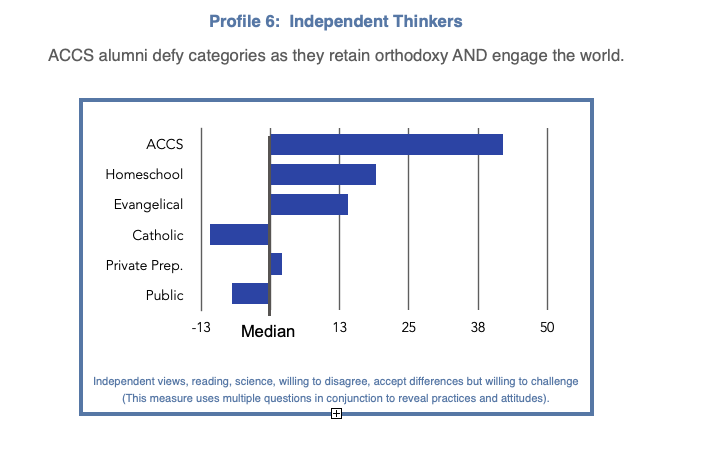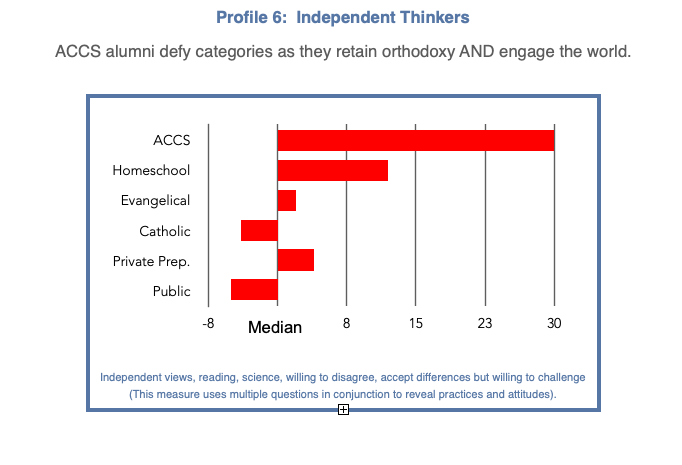Have you ever read a sentence or seen some data and thought that it's too good to be true?
That happened to me recently when I was looking at the Good Soil Report. If you missed the first post in this series explaining the report, please click here to read it. The report compares educational outcomes for 24- to 42-year-old alumni from public schools, private prep schools, homeschools, Evangelical Christian schools, Catholic schools, and Classical Christian schools.
Recently, the Association of Classical Christian Schools (ACCS) has asked me to lead some of their exciting new National Initiatives. I have been a board member for ACCS for 17 years, and I'm excited to help move these forward. As part of that effort, I am working with a marketing firm to put together some literature and slides to explain the findings of the Good Soil Report.
As I interacted with this marketing firm, I had a tough decision to make. The indexes in the original report have two bars for each option: a blue bar representing the raw data and a red bar representing the data adjusted to isolate the impact of the type of education solely.
The researchers put the data into seven helpful indexes covering topics like College and Career Readiness and Christian Practices. I am going to use the Independent Thinker Index for this example (here is the raw data):

What’s the quandary, you might ask, doesn’t this show a great outcome for ACCS students? Yes, it is, but I was worried that it was too good. After bouncing it off a few people, I came to a provisional decision: I was going to use the red-bar data. Here is that red bar (adjusted data) isolated:

Looks good, but it is not as good as the raw (blue) data. After thinking it through, I came to the conclusion that I am going to use the raw unadjusted data, as it is, in fact, the truest data. It also struck me that I was tempted to use the red adjusted data because the blue data is just too good. That is a really good problem to have!
I look forward to unpacking some of this compelling data with you over the next couple of weeks, as we examine each category of responses and see how the results of a Classical Christian Education measure up.
If you think the promises of Classical Christian Education sound good to you - or even "too good to be true" - we invite you to talk with our Admissions Director Jill Trimbath about the real-life, unique culture, community, and curriculum at Veritas Academy , and how it is molding loving, serving, thinking students. We'd love to show you how our exceptional faculty and time-tested Classical model create well-rounded, well-spoken, well-read graduates who are prepared to engage Biblically and flourish wonderfully in the world they will face.
Click to schedule your personal summer tour, or RSVP for our July 9 Virtual Open House.







